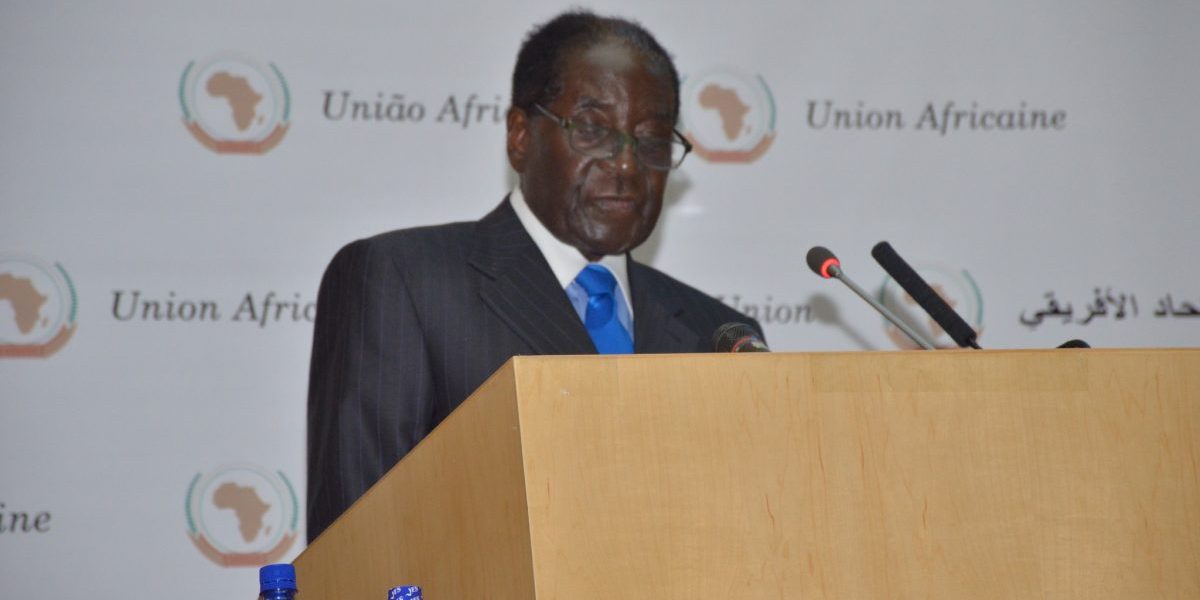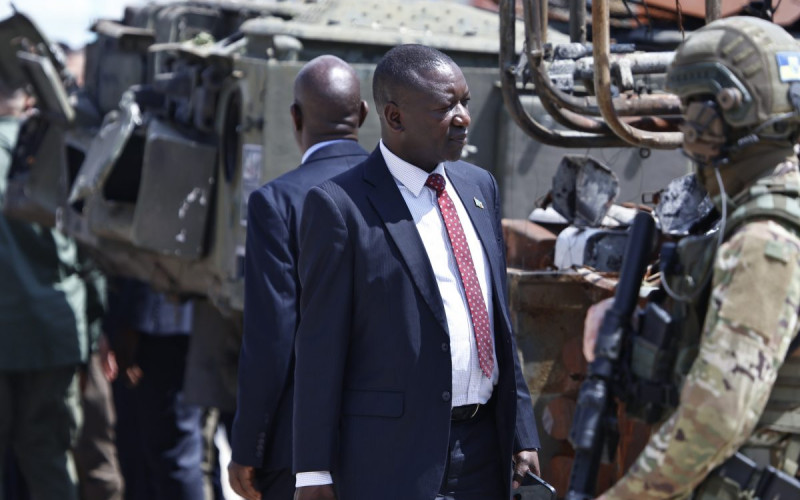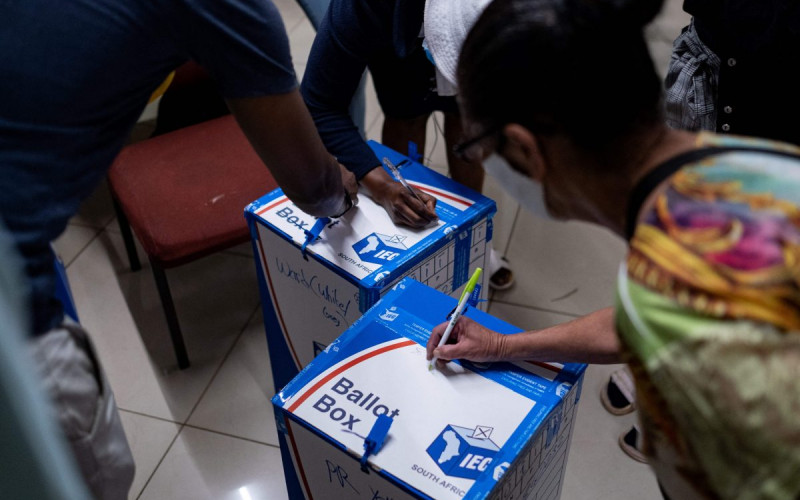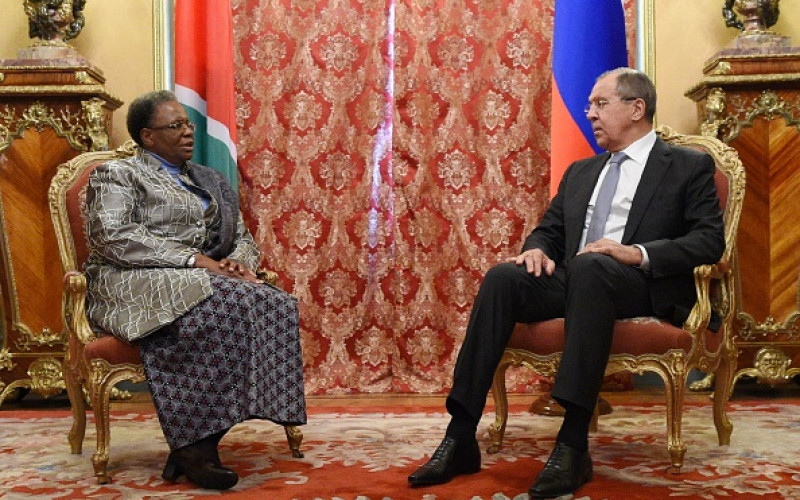On March 21 the state-run Herald Newspaper ran a lengthy analysis explaining why Zimbabwe’s ruling party beat its rival, the Movement for Democratic Change, in a by-election in Zengeza township, one of the opposition’s urban strongholds in Harare. With characteristic zeal, the newspaper stated: ‘African liberation movements which freed people from the yoke of imperialism and colonialism would always get support from the people and that, in Zimbabwe’s case, Zanu-PF has that solid track record.’
Political parties justify their claim to power in different ways. Some promote a vision, others recite accomplishments in office. African liberation movements often evoke the struggle they waged against foreign or minority oppression, especially when they have been in office too long to remember the ideals they once espoused or can no longer defend the record they have built.
But when evocation becomes exploitation, the present becomes captive to the past. The manipulation of waning collective memory – the re-asserting of the affirmative, inclusive aspirations of the struggle as exclusive nationalism for party political gain in societies where the majority were born after independence – poses one of the greatest threats to democratic governance and economic development in southern Africa and, consequently, the continent.
Although this conflict between the ideals of the struggle and their post-liberation interpretation influences the political and economic dialogue in Namibia, Mozambique and South Africa, it is nowhere more extreme than in Zimbabwe, where the descent into violent political and economic disintegration provides a case study in what happens when a liberation movement goes from the struggle to the State House and fails to adapt from an essentially military-command paradigm to a democratic one.
In the lexicon of the ruling party, the Zimbabwe African National Union-Patriotic Front, the struggle has become justification for every breach of the hopes of the fighters who gave or risked their lives to free their people: Every threat to the party’s power is external or externally imposed, and every rumble of popular discontent is justification for permanent mobilisation.
‘Mugabe – and Zanu-PF is Mugabe – uses the rhetoric of the revolution to excuse repression,’ said Wilfred Mhanda, second in command of Zanu-PF’s military wing in the mid-1970s. ‘We are told we are in a state of war. We are not in a state of war.’ In the Southern autumn of 2000, Zimbabwe’s characteristic calm unraveled in a battle for land. Stung by his first defeat at the polls – the rejection of his draft constitution in a national referendum – Mugabe unleashed veterans of the liberation war to achieve by violence what he attempted to codify in law, namely the acquisition of white-owned land without compensation.
The ensuing four years would witness the rapid unraveling of all democratic practice. White commercial farmers and the large community of black labourers they employed were brutalised and run off nearly 11 million hectares of productive land. Courts were purged of nearly all jurists found unsympathetic to the government. The foreign media was barred and the domestic media placed under unprecedented restrictions. Two national elections were disrupted by violence and extensive fraud. Food aid was manipulated for political gain. And militant cadres of conscripted and coerced youth were deployed to conduct a rolling campaign of intimidation.
Today, inflation chases 600%; eight of every 10 working-age Zimbabweans cannot find a job; agricultural production has fallen dramatically and nearly half the population faces persistent malnutrition and risk of starvation.
In justifying its political course, Zimbabwe’s ruling class has made two key assertions with increasingly militancy: first, that the struggle against minority rule in the 1960s and 1970s was about taking back land expropriated by white settlers; and second, that Britain, as the former colonial power, has actively prevented the government’s attempts to redistribute that land more equitably.
Both claims are true – up to a point. Land was indeed a motivating factor in the liberation struggle, and Britain has been reluctant to finance land reform (exemplified most notably during the 1979 independence negotiations at Lancaster House when London refused to make any specific monetary commitments).
But these claims are also highly selective. The language of the struggle, captured most eloquently in freedom songs, was inherently inclusive: universal education, free health care, and land for all. Zanu-PF’s 1980 election manifesto enshrined national democratic rights, freedom of the press – in essence, the redistribution of opportunity. The first few years of majority rule reflected these imperatives. Mugabe’s aggressive education reforms created Africa’s most literate society in one generation. Life expectancy rose and infant mortality fell as access to health care expanded. Reconciliation was a keynote of governance. Mugabe’s first minister of agriculture was white – a deliberate gesture to reassure commercial farmers, the backbone of the economy, that their place was secure.
Those gains, while significant, also masked early signs of Zanu-PF’s discomfort with democratic practice. Mugabe’s preoccupation with consolidating power and eliminating enemies, which characterised Zanu-PF’s internal dynamics during the struggle, continued after independence. The new elite’s quest for personal gain undermined the pursuit of social change. Importantly, Zimbabwe’s current ‘permanent crisis,’ as one Western diplomat described it, was precipitated by the emergence of the first real threat to Mugabe’s monopoly on power.
‘The struggles of the year 2000 – the farm occupation, the protests over the constitution, the violence before and after the election, to name but a few – are related to the current power elite’s definition and understanding of the meaning of the struggle for independence,’ concluded the war historian Josephine Nhongo-Simbanegavi in her recent work on Zanu-PF’s military wing entitled For Better or Worse? Women and ZANLA in Zimbabwe’s Liberation Struggle.
Like 50,000 other young men and women from her generation, William Bongo and Freedom Nyamubaya crossed the border into Mozambique to take up arms. She was 14 years old at the time; he was scarcely older. They were motivated – as they all were – by their deep anger at the injustices of minority rule and longed to help secure free education, health care, better living standards and democratic freedoms.
Both paid prices for their sacrifices. Asked what it was like to be on the front, fighting against the better armed Rhodesian army, Nyamubaya replied, ‘Wonderful. At the back we got raped.’ Bango, meanwhile, spent three years in a Rhodesian prison.
When the war was over, they both turned their energies toward building the society they imagined. Nyamubaya went into development work with non-governmental organisations and bought a small game farm. Bango, better educated than most of Mugabe’s combatants, went to work for the state-owned Herald newspaper.
In time, both became disillusioned. Although Mugabe expanded health care and opened the doors to education and health care, the new signs of repression soon became impossible to dismiss. Immediately after independence, the so-called crisis of expectation strikes of teachers and nurses were brutally suppressed by the edgy new government and within three years the leadership of the Zimbabwe African People’s Union – Zanu-PF’s partner in the government of national unity – had been arrested. Its leader, Joshua Nkomo, was forced into exile. The national army was turned on civilians in a campaign of homicidal intimidation in Zapu’s Matabeleland stronghold in the south. The reign of terror left up to 20,000 dead.
The death penalty, meanwhile, was reinstated and Rhodesian security legislation preserved. A state of emergency allowed for detention without trial. A few months of relative post-independence press freedom ended as editors were sacked one after another and journalists were deported.
By 1987, Mugabe had crushed and consumed all opposition and changed the constitution to make himself executive president with expanded and consolidated powers. Corruption had spread through the ranks of Zanu-PF, despite a Leadership Code forbidding wealth accumulation, and some of the best and brightest from the liberation struggle began leaving the country.
As the flames of democracy were snuffed out, the West, and particularly the former colonial power, Britain, watched silently. ‘We had freedom, briefly, in 1980, at independence, but instead of expanding, it diminished, until today we have virtually no space at all,’ said political analyst Brian Raftopoulos at a small public meeting in late April. Frustrated by eroding press freedoms, Bango set off to help launch a feisty independent newspaper in 1999. In its brief four-year life, the Daily News was bombed and banned and ultimately shut down by the state. Now Bango works as a personal assistant to opposition leader Morgan Tsvangirai.
‘Democracy can be difficult for people involved in a liberation struggle,’ he said.’ Because of the way we lived at that time and the suspicions of the time, challenges to the leadership even long after the war ended are used to present our problems as an extension of the war. We still use all the slogans. The struggle continues. “A luta continua” doesn’t allow us to recognise that peace is possible. We see enemies all over the place, and we are made to believe we are permanently under attack.’
Nyamubaya now lives in a small town 60 kms southeast of Harare. ‘We never demobilised,’ she lamented.
Unlike South Africa’s African National Congress, which was a consensus-oriented movement that incorporated an armed component firmly under its central command structures as a means to force the enemy to the table, Zanu-PF was by nature a guerrilla movement that saw warfare as the primary means of achieving its objectives. Consequently, while democratic nationalism was its stated ideal, democracy was never its culture. ‘It was always going to be difficult to move from the commandist political culture of the time to one of consultation and accountability,’ said Paul Themba-Nyathi, a member of Zapu’s military wing who spent the last three years of the liberation war in prison. Now spokesman for the opposition MDC, Themba-Nyathi worked in the early years of independence on the only serious project to rehabilitate and reintegrate former guerrillas into a changing society where education – which few had – was the new requirement for survival.
‘The guerrilla forces tended to be very secretive and any discourse was difficult,’ he said. ‘It was easier for us than for those in Zanla [Zanu-PF’s military wing] because we were not only a guerrilla force. We had a political leadership which encouraged space for discourse. In the case of the Zanu-PF leadership and its reliance almost totally on its guerrilla forces, a culture of tolerance and political pluralism did not develop.’ After independence, ‘when corruption began … those that had power protected their gains at all costs, and the combination of corruption and a commandist culture is a lethal combination.’ Despite Mugabe’s relentless pursuit in building a one-party state in the early years of independence, he did allow spectacular developments in the ministries of education and health. Renowned educationalist Heather Benoyi, now developing education strategies in Sudan and other troubled regions of Africa, remembers the first years of independence with affection.
‘We were so motivated to redress the imbalances, we were caught up in the joy of liberation, and worked night and day,’ she said. “We developed the new curriculum and produced cost-effective books in what we believed was going to be an egalitarian society. Our minister, Dzingai Mutumbuka, and later Fay Chung, came directly from the liberation struggle, and at least in education, in the early years, we managed very well.’ But by as early as March 1981, the signs of internal rot were already apparent. Addressing a group of Jesuits on the 13th of that month, Chung lamented the continuation of war-time practices in government. Related in Norma Kriger’s study Guerrilla Veterans in Post-War Zimbabwe, Chung said her colleagues often displayed an attitude of entitlement and impunity. ‘If refugee children had no school,’ for example, ‘why couldn’t the ministry of education just take a “white” school and give it to them?’ The mentality of ‘requisitioning without rendering any account’ would emerge repeatedly in Mugabe’s government. Mutumbuka and Chung ultimately left, disillusioned, to work overseas.
Zanu-PF’s past turned out to be Zimbabwe’s prologue. Wilfred Mhanda is the most senior war veteran ever to turn his back on the movement he served. During the struggle, when it was based in Mozambique, he said, Zanla was unanswerable to any code of law. ‘We were a state within a state,’ he said. ‘There was no democracy, especially in the latter stages when we absorbed a culture of intolerance. We had a special extra-legal status. The corruption started there. Drugs, money – anything that could be stolen, was stolen. There was never any internal democracy in Zanla.’
At one point during the war, a group of Zanla soldiers tried to incorporate democratic reforms into the movement. ‘Their attempt to create a political forum held great potential to reduce indiscipline,’ observed Nhongo-Simbanegavi. ‘Yet the old leadership of Zanu descended heavily on these attempts and crushed them indiscriminately. Indoc-trination replaced free thinking … and most efforts were devoted to weeding out those who had supported the (Marxist) workers.’
That commandist, top-down culture still pervades Zanu-PF. Within the Central Intelligence Organisation, the shadowy and intimidating government cell that monitors any and all potential threats to Mugabe’s monopoly on power, the odd member willing to speak secretly with journalists say that as much effort goes into spying on Zanu-PF leaders as it does on civil society and the opposition.
‘Out of the liberation struggle we had soldiers used to following commands and unable to manage within a democracy, so we had this culture of intolerance,’ said Lovemore Matomba, president of the Zimbabwe Congress of Trade Unions. ‘They failed to accept that things do change and that a set of standards was necessary – that divergence of views and values needed to be accepted and tolerated.’
Mugabe’s exploitation of the land issue during the past four years was clearly tactical. The MDC was only four months old when it handed Mugabe his first defeat, and its base of support was significant. Tsvangirai had been secretary-general of the congress of trade unions. The agricultural sector – importantly, blacks as well as whites – supported the new party. Mugabe understood the threat.
‘A key concern for authoritarianism is where does the support of the peasants lie,’ said Moeletsi Mbeki, a political observer in South Africa. ‘Mugabe’s primary purpose in land reform was to destroy the base of farm workers – to disenfranchise that bloc.’ Mugabe roused the dormant liberation war structures, mobilising a small and disgruntled constituency – the bona fide war veterans he had neglected for the better part of two decades – around the emotionally volatile issue. Two decades after independence, how many could recall the true ideals of the struggle? Most of the population today is ‘free born.’ Even some of Mugabe’s most trusted contemporary aides played little or no part in the fight against colonialism.
Within days, some 2,000 war vets and a growing cadre of agitated ‘free borns’ – youths born after independence – began taking 11 million hectares of white-owned commercial farmland by force, motivated by Mugabe to ‘finish’ the revolution. ‘The war veterans who responded to the call had been left out of the economy,’ Bango said. ‘You could see them selling razor blades at the railway station in Harare. They had little education before they went to war and little opportunity to catch up afterwards. So when land was offered, they went.’
The third Chimurenga – the current land campaign, as it is called by the government in revolutionary terms – has been far more successful in driving the declared enemy, whites, off the land than were formal hostilities two decades earlier. In the effort, Zanu-PF marshaled the police, the army, the courts, parliament, and the state media to silence dissent, terrorise the population and stave off the emergence of the first post-liberation social democratic party in southern Africa.
Speaking with the Canadian academic Richard Saunders in the 1990s, Reg Matchaba-Hove, the former chairman of ZimRights, a human rights organisation, said: ‘In the early years of independence there was that euphoria, and I think we allowed the leadership to do as they pleased. We gave them the benefit of the doubt and we thought if they made mistakes they were minor mistakes; after all, we had peace, stability and independence.’ Today, the price of that complicity is clear. Ironically, there are now more Zimbabweans in exile – even taking into consideration population growth – than at independence, when the UN High Commissioner for Refugees repatriated a triumphant, joyful 1.2 million home.






